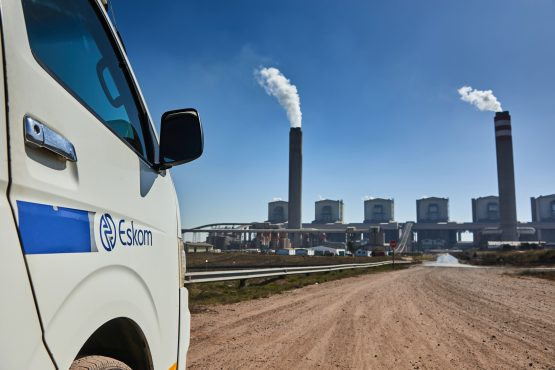
GENERATIVE Artificial Intelligence (AI) demands substantial amounts of energy to execute searches and generate responses compared to conventional web searches.
This energy intensive nature of AI models raises alarms, especially in a country like South Africa grappling with an electricity crisis. The country already faces challenges in meeting its energy demands and grid constraints, which will intensify using generative AI, remarked Dr Tina Gama-Kotze in a paper titled A Green future for Generative AI in South Africa.
This is a wake-up call to Southern African countries in their adoption of Generative Artificial Intelligence. At a policy level, Southern African countries need to adopt a policy shift towards developing renewal sources of energy to sustain its energy requirements including powering AI hardware.
This is crucial given the challenges of energy generation in Southern Africa. It may be worthwhile that countries in the region prioritise renewal energy sources, such as wind, solar, sunlight, water, geothermal heat and biomass.
In the interim, this is important to augment the already available energy sources, such as thermal power plants and hydropower plants. In a recent article, Kate Crawford, observed that: “Generative AI is guzzling water and energy”. She highlights the environmental costs. Crawford said the impact of Generative AI has come under scrutiny. She shed light on the excessive energy consumption and freshwater use of Generative AI, exemplified by models like CHATGPT. To address AI’s ecological impacts, she suggests that the “industry priorities using less energy, building more efficient models and rethinking how it designs and uses data centres”.
To this end, the coming in of AI has made extra requirements for energy in the world and Southern Africa, in particular. This becomes a burden to the power requirements of the region that is already facing energy challenges and predominantly relying on thermal power and hydro power.
This gives a practical justification why Africa and Southern Africa, in particular, need to come up with policy prescriptions that promote other forms of energy, like green energy to power industry, especially with the advent of AI, whose hardware requires significant amounts of energy to function.
Artificial Intelligence is revolutionising everything from health care and finance to entertainment and daily conveniences. Behind the seamless user experience and groundbreaking innovations lies a critical component that often goes unnoticed: The immense power required for AI processing.
- Harvest hay to prevent veldfires: Ema
- Public relations: How artificial intelligence is changing the face of PR
- Queen Lozikeyi singer preaches peace
- Public relations: How artificial intelligence is changing the face of PR
Keep Reading
Ipso facto, Southern Africa needs to be proactive around making researches that can ensure the proliferation of green energy, such as wind and solar. AI with its demand for substantial amounts of energy requires that all industries get enough energy provision in addition to what they are using now.
Cognisant that AI usage straddles all industries, such as mining, agriculture, education, manufacturing, immigration and transportation. Hence all these industries need extra power to use including for AI hardware. Core hardware components like CPUs, GPUs, TPUs and FPGAs are crucial in enabling AI and require a lot of energy to process data.
AI, which often requires running computational on gigabytes of data, needs enormous computing power compared with ordinary workloads. Businesses have discovered that they cannot effectively operate AI-driven applications with their existing data centers or cloud environments.
In fact, AI requires much computing muscle that merely adding another couple of servers or marginally increasing the organisation’s cloud budget will not be enough as noted by Adan Weiss, the Vice President of Vertical Markets for CDW, in his article titled Why Artificial Intelligence requires High-Performance Computing?
Technically all servers require power, and the work of converting AC utility power into the DC voltage required by a server’s sensitive electronic device is handled by power supply (PS). The PS is typically an enclosed subsystem or assembly – box – installed in the server’s enclosure.
So because of the specialised nature of servers, they require a constant power flow even in the event of errors. The very last thing anyone should be doing is unplugging a server without guidance from their IT partner.
This explains the importance of power to AI hardware and as such more sources of energy are needed in the 21st century to respond to the needs of AI hardware.
In view of this, Southern African countries need to increase impetus in terms of investing in geothermal energy, biogas, solar and wind. Generation of these forms of energy is crucial in a two-pronged manner: Firstly it is the provision of power to AI hardware and for other industrial uses, and secondly, it can ultimately lead to the phasing out of energy sources that pollute the environment exacerbating climate change challenges. The world seems to have gone wild for artificial intelligence and all its potential applications. As the tech industry builds out new data centres to handle the future, projections for the amount of electricity that will be needed are starling.
AI power demand in the UK is expected to rise 500% over the next decade, according to a Bloomberg article of June 24 2014.
In another, Bloomberg article titled AI needs so much power that old coal plants are sticking around last updated on January 25, it was observed that “In a 30 square mile patch of northern Virginia that’s been dubbed ‘data centre alley’ ’the boom in artificial intelligence is turbocharging electricity use. Struggling to keep up, the power company that serves the area temporarily stopped new data centre from running diesel generators during power shortages, but backed off after it drew strong community opposition”.
The United Kingdom and United States power pressure mentioned above, some of which exacerbated by AI hardware reveals a drastic shift in world energy requirements.
The case in point is that AI has brought another strain to the already existing world energy requirements as AI hardware uses significant amounts of power to process data.
The other big challenge is that AI power requirements are coming against the backdrop of the need to phase out environment polluting energy sources, particularly coal and diesel generators.
This adds a big strain to countries that have not yet developed a strong green energy chest as coal and diesel generators have been useful in powering industries for many years and are still doing so especially in Africa.
In Africa, most work around electricity generation happens through the use of coal to turn turbine generators.
Coal-fired plants produce electricity by burning coal in a boiler to produce steam. The steam produced under tremendous pressure flows into turbines, which spin a generator to create electricity.
The steam is then cooled condensed back into water and returned to the boiler to start the process over.
The challenges of using coal are evident. Several principal emissions from burning coal: Sulfur dioxide contributes to acid rain and respiratory illnesses, while nitrogen oxides produce smog, which causes respiratory illnesses and lung diseases.
So with the usage of AI in various industries in Southern Africa, it is clear that power usage will increase over and above the power requirements that have been there. Therefore, underscoring the need for generating green energy to augment what is already there, that is thermal and hydroelectric power that has been traditionally used.
Consequently, this can result in the phasing out of coal and diesel energy, which is a threat to the environment.
However, this is only possible when adequate research and production of clean energy happens in the world and Africa, in particular, to ensure that industry gets enough energy including for AI hardware.
- Mabhachi is a freelance journalist and mobile communications and dynamic spectrum access Activist. — medatechzim@gmail.com.










